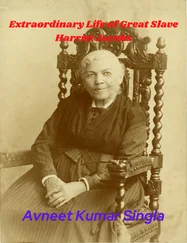The woman rolled her eyes and exhaled again. “Just wait. You can sit.”
She stood and disappeared into the next room. As the frosted-glass door opened, Melanie saw a series of women having their hair washed by a band of white-robed attendants hovering over a row of sinks. The intricate motion of the various stylists, hair washers, and the occasional customer appeared choreographed, like a secret dance of the Hungarian nouveau riche. Women young and old prepared for holiday parties and gallery openings across the city. Some of them might be at her concert a little later. The nausea contemplated an encore. The most compelling people present were those with no apparent role in the unfolding drama, those who gathered only to watch and to be seen watching. She waited for what had to be fifteen full minutes before the receptionist came back. “Judit can help you today, but you must wait.”
“How long?”
“I don’t know — thirty minutes. Maybe more.” She looked like she was made out of crinkly brown construction paper.
“Fine,” Melanie told her, unwilling to be frightened off. She sat and tried to make herself comfortable.
Her Hungarian wasn’t perfect, far from it, but it wasn’t bad for someone who had never taken lessons. She understood just enough to follow the conversations around her. The ladies-in-waiting were agog over some Hollywood actor’s visit to Budapest to shoot a film, and about a famous transvestite’s appearance in that very salon just yesterday. One woman, accompanied by her daughter and her daughter’s Puli, looked like the recipient of at least one face-lift that didn’t take.
A glamorous woman of indeterminate age approached and said, “Kávé vagy pezsgő?” and upon receiving an answer fetched a hot mug of surprisingly good coffee. Vienna’s famous coffee houses were just three hours away, yet it was still next to impossible to find a decent cup in Budapest. A little hair of the dog would have done her some good, but Melanie never drank alcohol before a concert. She sipped slowly and self-consciously, holding the saucer in her lap the way her mother had taught her. The usual magazines stood in perfumed stacks on the table, along with several unread, erect-postured hardcover books and current issues of the three local newspapers written in English. She flipped through one while listening in on the conversations around her. The caption “Nanette Oread” appeared beneath every photo. The cover story detailed the different Independence Day festivities throughout the city, and she was surprised to find a long feature on Lajos Harkályi on the front page of the Arts section. Much of it was lifted almost verbatim from the Grove Dictionary of Music and Musicians, but it was also more or less common knowledge. Born in Hungary, Harkályi had been sent to a concentration camp as a child, which was where he started to compose music. After the war, with the personal help of Eugene Ormandy, he ended up at the Curtis Institute, where he devoted himself to composing music full-time. He labored for years in obscurity until a small indie label agreed to release his Symphony No. 4 (“Musik Macht Frei”), which according to the Pulitzer Prize announcement, “fulfilled all of the obligations of the masterpiece while simultaneously looking back in terror and forward with hope of redemption.” The album had sold four million copies and his subsequent recordings did nearly as well. Whatever. Sure, his story was tragic, but no one talked about the actual music.
A different woman finally escorted Melanie to the hair-washing area, where she was draped in an elegant silk smock and silently directed to a chair that tilted comfortably backwards to a sink of blue glass. She wished she had removed her sweater. Having her hair washed took forever because the woman used what had to be five or six different shampoos, conditioners, and rinses. She was leaned forward again, her hair patted down with a towel, then led to another room deeper in the heart of the hotel and into a plush, overstuffed version of a traditional barber’s chair. Four of them lined the full-length mirrored wall like obese ballerinas. From where she sat, the mirrors in front and behind revealed hundreds of her own bright-red faces staring back at her. In the spotless silver screens, the flat motion of the salon behind her took on the elegance of a vintage black-and-white film, but her own reflections looked like they had been crudely colorized for cable TV.
A heavily accessorized woman, presumably Judit, approached. She looked angry. Before she said a word, Melanie panicked. She wanted to scream, to throw a blow-dryer through the nearest mirror. She could already see her reflections shattering. They tinkled and sparkled on the marble floor. She saw her severed hair among the broken glass, like some kind of lost limb that still tickled her scalp. She gagged. There was no way she could allow this woman to cut off her hair. She heard fabric tear as she pulled off the smock. She dropped a five-thousand forint bill on the counter, grabbed her coat, and bolted for the door. Everyone watched her in bemused disbelief. Melanie hated every last one of them.
Tears rolled down her face and ice formed in her hair. Unwilling to face the crowds back at Nyugati, and risk running into someone she knew, she pulled her coat close around her neck and rushed home. Four long blocks. She cried the entire way, uncontrollably, without any specific reason she could pinpoint. Nanette will never let her hear the end of it — she could be a total bitch like that sometimes. She half-jogged the entire way, sobbing into her scarf. Her teeth chattered. Clothes stuck to her damp skin. It felt like someone had dumped an ice bucket down her turtleneck. She couldn’t feel her ears, and was going to get pneumonia, but at least her headache was gone. A pack of drunk boys in generic-looking blue jeans and bootleg NBA jackets came out of the McDonald’s and jostled each other for her attention, taunting her with fake boo-hoo-hoo sobbing. She could still hear them as she slammed the apartment door behind her, shutting out the whole stupid city.
4.
Melanie stripped off her wet clothes and left them in a bunch on the kitchen floor. The whole room stank of garbage and sour milk and something so nasty she didn’t even want to attempt to identify it. She shoved some pans off the stovetop and onto the counter, creating a chain reaction that sent an ashtray full of butts crashing into the sink. She ignored the new pile of broken glass and filled the kettle from the tap. She took a match from the box and turned on the gas.
Naked, the usual heat of the apartment felt about right. An ogre in blue overalls lived downstairs in the dank basement of the building, from which he controlled the heat with a huge lever mounted on the wall. Every November 1 he switched it from OFF to SWELTER, and every April 1 he moved it back again, regardless of petty details like the actual atmospheric conditions. What he did with the rest of his time remained a mystery. He obviously didn’t work on the elevator. She and Nanette typically adjusted the heat by opening the living room windows and curtains to various apertures. None of that was necessary right then. Her ears and fingertips and toes still tingled. The radiators clanged and clanged around the clock; they needed to place bowls full of water and orange peels on them to prevent their skin from drying and cracking. The dry cold was murder. The kettle whistled, G-flat sliding up to D-sharp, before she removed it from the heat. Chamomile.
Melanie loved having the apartment to herself, even if it was a complete mess. Once the concert was over and done with she would scrub the floors, vacuum, dust. It’ll be like therapy. She carried the pot, a clean mug, and an oversized Milka bar into the bathroom and set them on the floor, where they kicked up a tiny puff of baby powder. She avoided looking at herself in the mirror and then realized that she was avoiding herself, so she looked. Her face was puffy. Rings had formed under her eyes. She dislodged some remaining specks of ice from her hair. She was exhausted, miserable. So absolutely miserable.
Читать дальше












